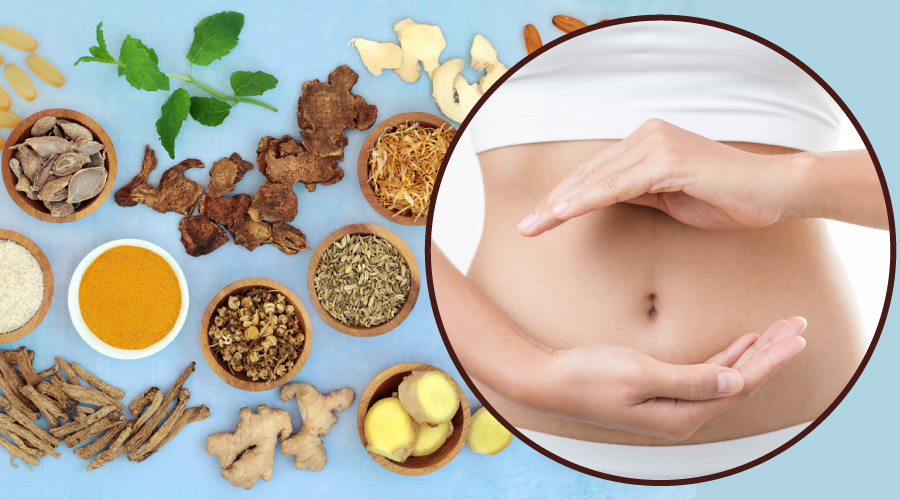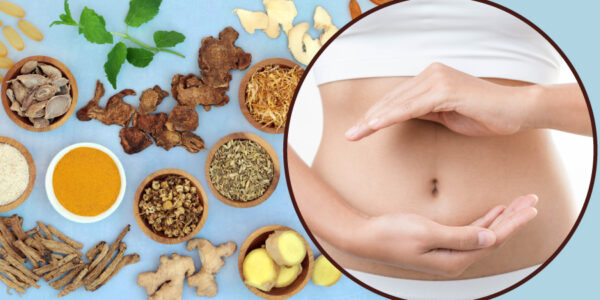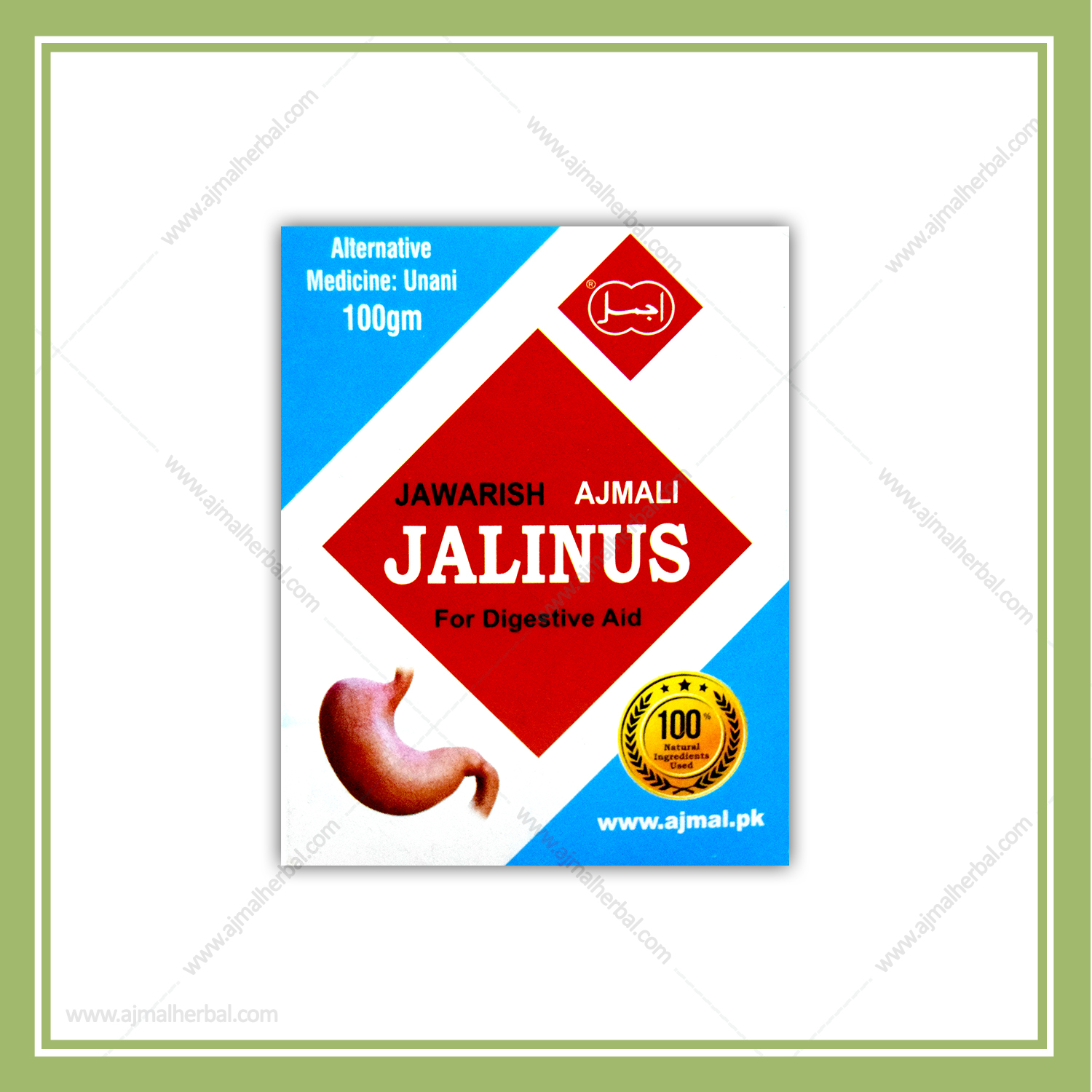Standardisation of a Unani Pharmacopoeicial preparation Jawarish-e-Jalinoos


Definition:
In Unani system of medicine “Jawarish-e-Jalinoos” (J.J.) is a poly herbal, semi-solid preparation used for stomach disorder.
There are two phases in the preparation of Jawarish-e- Jalinoos (J.J.)
- Solid phase (Pulverized herbs).
- Liquid phase (Is the base “Qiwam” made of purified sugar or honey or in combination of sugar-honey).
Introduction
Classical Unani practitioners have talked about their experience regarding the identification of crude drug (Herbs), their authentication methods and about their clinical efficacy many times. They also mentioned compound herbal formulation and their possible expiration dates. The present challenge for chemists and pharmacists are to validate these claims applying scientific methodologies. Proper identification & standardization is important for all Unani pharmacopoeicial and non- pharmacopoeicial preparations, to ensure the therapeutic efficacy of herbal drugs used for health ailments. Formulations should be standardized according to the guidelines of Pharmacopeia to ascertain their quality standards.
Standardization is pre-requisite in quality control of single as well as compound drug. Quality evaluation is a fundamental requirement of industry and other organizations dealing with local traditional medicines and herbal products. So it is very necessary to standardize compound formulations in order to check the purity, genuineness and optimum therapeutic efficacy of a preparation. It is essential to assess of quality of drugs which is based on the concentration of their active principles, physic-chemical property, phyto-chemical constituents and various other in-vitro and in-vivo parameters.
Quality assessment of herbal formulations is of paramount importance in order to justify their acceptability in the present system of medicine. It also requires implementation of Good Manufacturing Practices (GMP).
The safety and efficacy of a poly-herbal pharmaceutical formulation depends upon the authenticity of raw material. Sub-standard drugs effect adversely the reputation of physician and cause more harm than good to the patient. With the objective of Standardization present study was designed to standardize a Pharmacopoeicial preparation Jawarish-e-Jalinoos, used in various stomach ailments and is made up of thirteen ingredients.
Aim and objectives of the present study is to standardize and to assure the quality of a Unani Pharmacopoeial preparation Jawarish-e-Jalinoos (Tibbi Pharmacopeia of Pakistan), used for various stomach disorders.
Note:
The tests carried out or referred to under this heading are not necessarily sufficient to establish absolute proofs to identity. They provide a means of verification that the material being examined is in accordance with the label on the container.
Ingredients
(Valeriana hardwickii), Asarun (Urdu) , VALERIAN (English) , (Elettaria cardamomum), Iiaichi khud (Urdu), CARDAMOM (English), (Cinamomum cassia), Taj, darchini (Urdu), CINNAMON (English) , (Cyperus scariosus) Saad Kufi (Urdu), SWEET CYPERUS (English), (Alpina galang Khulanjan), (Urdu), GALANGAL (English),( Zingiber officinale) Zinjibeel (Urdu), ZINJBIL (English,, (Piper longum), Filfil daraz (Urdu), LONG PEPPER (English), (Saussurea lappa), Qust (Urdu), COSTUS (English), (Valeriana officinali)(s), Baarchar (Urdu),TRUE VALERIAN (English), (Myrtus communis), Aaas (Urdu), MYRTLE (English), (Swertia chirta),Chiraitah (Urdu), CHIRATA (English), ( Myristica caryophylus), Jaifal, (Urdu), NUT_MEG (English), (Pistaic lentiscus), Mastagi, (Urdu), MASTICH (English), and sugar.
Materials & Methods
Jawarish-e-Jalinoos, freshly prepared was taken from store of Dawakhana Hakim Ajmal khan 155M, Quaid-e Azam Industrial Estate, Lahore (Batch Number x 36), Mfg. 03-2023. Unless stated otherwise, water means “Distilled”, and room temperature means “25C”. All experiments were carried out at temperature 25-27C. All experiments were carried out as laid down in Organoleptic and Physio – Chemicals standards (booklet) Part one Publication of Dawakhana Hakim Ajmal Khan Pvt, Ltd.
Physicochemical data
Appearance Semi-Solid
Colour Brownish black
Smell Agreeable
Taste Sweetish
Alcohol soluble matter 11-13.5%
Water soluble matter 63-65.5%
Successive extractives
Pet: Ether 0.9
Chloroform 1.3
pH of 1% 4.9
pH of 5% 4.7
pH of 10% 4.6
Variation (+) (-) 2%
pH 10g/100ml aqueous extract 5.9
Total ash 3.67 (Mean of 3)
Water soluble ash 0.56%
Acid insoluble ash 1.4%
Alkaloids……………………………………….. . (+)
Tannins…………………………………………... (+)
Resin……………………………………………... (+)
Reducing sugar………………………………… (+)
Crude fiber in solid phase……………………. (+)
Glycoside in solid phase……………………… (+)
Bulk Density…………………………………………1.32 (Mean of 5)
Bulk Density Solid phase…………………………0.97(Mean of 5)
Tapped Density Solid phase……………………..1.21 (Mean of 5)
Loss on drying Solid phase………………………4.6% (Mean of 3)
Discussion
Jawarish-e-Jalinoos is brownish-black in colour, semi-solid, characteristic of its own odour and sweetish bitter in taste. The sample was spread in a Petri-dish and observed. No filth, fungus or objectionable extraneous matters were found in the samples.
The Physicochemical studies includes the organoleptic characteristics , alcohol and water soluble contents, successive extractive values, ash values, moisture content, pH values, specific gravity, viscosity and Qualitative analysis of various constituents present in National formulary of Indian medicine . Percentage of Solubility is also considered as an index of purity, as alcohol can dissolve almost all substances including glycosides, resins, alkaloids etc. The ash value determination furnishes a basis of judging the identity and cleanliness of a drug and give information related to its adulteration with inorganic matter, furthermore, Ash values were used to detect the presence of any siliceous contamination and water soluble salts. These values are important quantitative standards as it is useful in determining authenticity and purity of drugs. The water soluble extractives indicate the presence of water soluble matters such as alkaloid, carbohydrate and flavonoids etc. The bulk and tapped densities are important from the storage point of view of raw material after pulverization; occupy less space than in raw form.
The moisture content of the drug is variable because mostly herbal drugs are taken as the ratio of the substance to the weight of an equal volume of distilled water at the same hygroscopic and excessive moisture content becomes an ideal medium for the growth of different type of micro-organisms like bacteria and fungi. They subsequently spoil the purity of drug. It is therefore, recommended to dry solid phase of Jawarish-e-Jalinoos at low temperature to get the required moisture level.
The pH provides a useful practical means for the quantitative indication of the acidity and alkalinity of a solution any change in pH during storage may spoil formulation and give ways to bacterial attack. In addition change of pH may alter physio-chemical properties thus, the medicinal properties. Qualitative phyto-chemical analysis of J.J. was also carried out for the determination of the presence of alkaloids, tannins, resins, sugars.
The therapeutic properties of the drugs are mainly due to physiologically active chemical constituents present in the drugs, and the lower percentage of chemical constituents may cause lesser therapeutic values
Standardization of herbal medicines is very essential for every single/compound formulation in order to obtain and understand uniformity in active principles, therapeutic efficacy and quality of the active ingredients. It is very important to establish a system of standardization for every herbal medicine because the scope for variation in different batches of medicine is enormous. Physicochemical constituents present in the drug vary, not only from plant to plant but also among different samples of same species, depending upon various atmospheric factors, drying and storage conditions. A little deviation from the normal in terms of quality and quantity of the constituents may alter the effect of the herbal drug. Apart from the degradation in the quality of the drugs that occurs due to above conditions, adulteration also contributes to variability. The physicochemical studies therefore, on the drug under study, were carried out to standardize the drug sample and to characterize for the future reference.
References
1, G.E.Trease and W.C. Evans, Pharmacognocy, 12th Edition, English Language Book Socity/Bailliere, Tindall.Eastbourne, BN21 3un.
2, A. A. Khan, Pharmacogostic studies of indigenous plants, (19790.Publication of Pakistan forest institutes, Peshawar.
3, Indian Pharmacopeia.
4, National formulary of Unani medicine (Part 1), Government of India Ministry of Health, New Delhi,110011 5, Physico-chemical Standards of Unani Formulations, Part I. Central Council for Research in Unani Medicine, New Delhi, India; 1986.
6,Physico-chemical Standards of Unani Formulations, Part II. Central Council for Research in Unani Medicine, New Delhi, India; 1987. 7,Pharmacopoeia of India, 2nd edition. Government of India, Ministry of Health, Manager of Publications, Delhi, India; 1970. P.110, 277, 441.
8,Antaki DA.TazkiraOolilAlbab (Arabic). CCRUM, Ministry of Health and Family Welfare, Dept ofAyush, Govt of India, New Delhi, India; 2008.
9,Brewster RC and McEwen WE.Organic Chemistry, 3rdedition.Prentice Hall of India, Pvt. Ltd., New Delhi, India; 1971.
10,Chopra RN, Chopra KCand Kapoor LD. Indigenous Drugs of India. U.N Dhur & Sons Pvt. Ltd., Calcutta, India; 1958.
11,Plants, Journal of Pharmacuetical Science. 1966;55:225.
12,Jenkins GL, Knevel AM and Digangi FE. Quantitative Pharmaceutical Chemistry,6th edition. CBS Publishers and Distributors Pvt. Ltd.New Delhi, India; 2008. Momin MH. Tohfatul Momineen. Matba Hasani, India; 1272H
13,Rasheed A, Reddy SB, Roja C. A review of standardization of herbal formulation. International Journal of Phytotherapy. 2012.
14, Hakim Abdul Hannan Pharmacognosy and material medica, Hamdard University Karachi Pakistan.
15, Hakim Ghulam mohiuddin,Ranumaya-aqaqeer,1990, Sheikh Bashir and sons Urdu bazaar,Lahore.
16,Herbal Remedies, 2001, Published by Geddes and grosset New Lanark,ML 11 9dj,Scotland.





